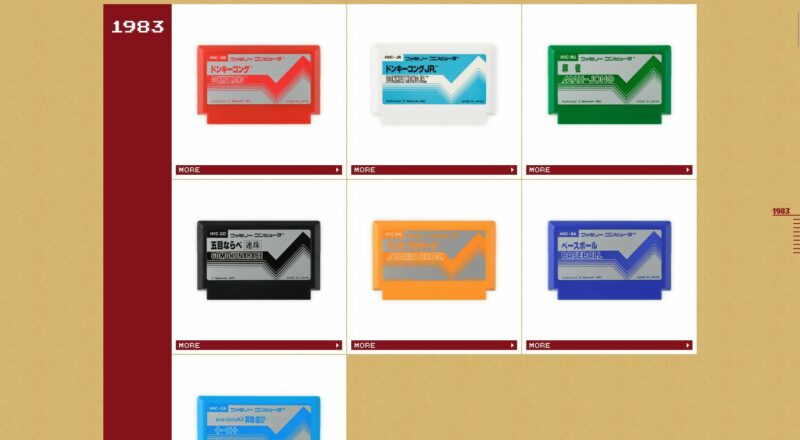
To celebrate the 40th anniversary of the Famicom, Nintendo is creating gorgeous bespoke pages for each of its first-party Famicom titles.
As you may or may not be aware, 2023 marks the 40th anniversary of the Nintendo Famicom, the smash hit console that took Japan by storm and was later redesigned as the NES for release in the west. To celebrate, Nintendo is going back through its Famicom back catalogue and creating bespoke web pages for each of its first-party Famicom titles.
This wonderful project was brought to our attention by John Ricciardi, the Tokyo-based co-founder of the video-game translation firm 8-4. He notes that Nintendo has created pages for games released between 1983 and 1986 so far, and “they’re all amazing”.

You can take a look at the Nintendo’s Famicom software index here. There’s an option to view either the box art, cartridge or title screen for each Famicom game, and each image is beautifully crisp. Until now, many of the images available for these games have often been poor-quality scans, so having this resource is a real treasure in terms of game preservation.

The Famicom archive also includes releases for the short-lived Famicom Disk System, an add-on for the Famicom that was only released in Japan. The disks were cheaper to produce than cartridges and enabled larger games, plus they were rewriteable, so players could take a blank disk to a shop and download a new title onto it from a kiosk.
The Legend Of Zelda and Metroid both debuted on the Famicom Disk System, but the fragility of the technology, along with piracy concerns, meant the Disk System was never released internationally.

Each entry on the Nintendo archive is beautifully presented, with artwork from each game, information about its release and details on the game itself.
Read more: Legend Of Zelda | Nintendo announces feature film
For example, the Legend Of Zelda page includes a guide to each of the items in the game, along with information on the enemies.

One notable absence from the Nintendo archive is Popeye, one of the launch games for the Famicom alongside Donkey Kong and Donkey Kong Jr. We can only assume that its absence is down to licensing issues, since as a Nintendo first-party release, by rights it should be represented.
However, the Famicom archive remains a lovely thing, and a real treasure trove of beautiful artwork and useful information. The downside is that it’s only available in Japanese, and because the text is attached to images, it can’t be run through translation software.
Still, it’s possible to use the camera function on your smartphone to translate the pages through the Google Translate app. But even without being able to understand the text, you can still appreciate all the beautiful original artwork and the care that’s gone into creating this.
Read more: The final Famicom was made 20 years ago today





